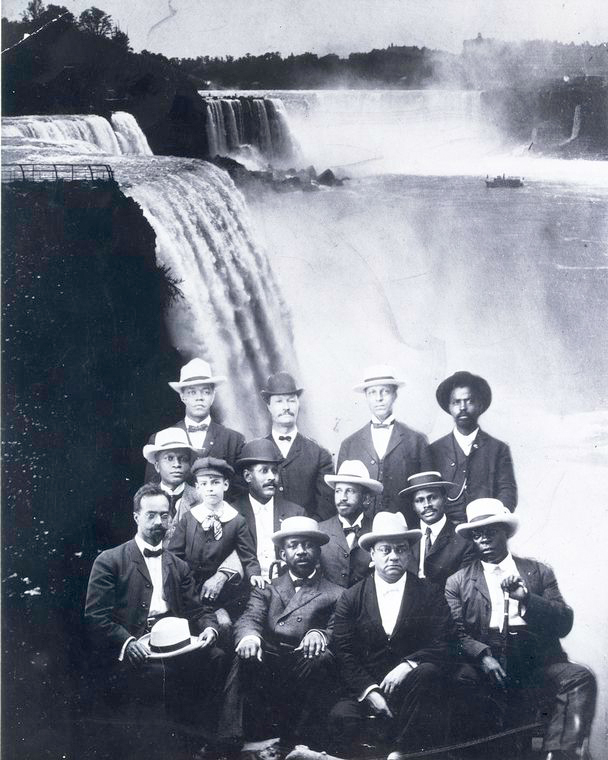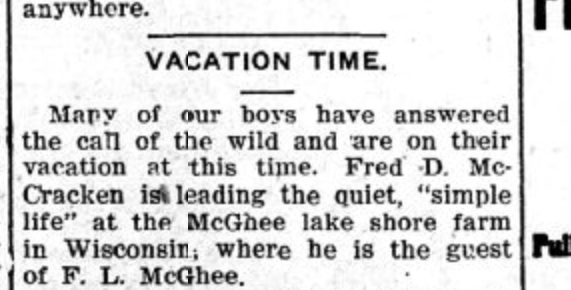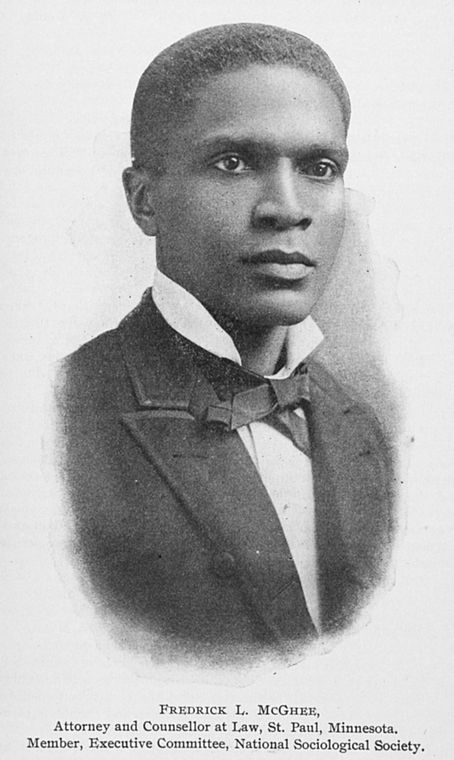Earlier this year, the Editor of the Ramsey County History publication recommended that I read the biography of Fredrick L. McGhee: A Life on the Color Line, 1861-1912 written by Historian Paul D. Nelson. The book, published in 2002 by the Minnesota Historical Society Press, details the life of Fredrick Lamar McGhee a progressive figure in local and American history with a fascinating connection to Polk County.
Fredrick McGhee was born into slavery in Mississippi during the Civil War to Sarah Walker and Abraham McGhee. The family escaped slavery and left the John A. Walker Farm in 1864 with help from Union troops. From Mississippi, they traveled north to Tennessee.
McGhee’s educational career started at a Freedman’s school in Tennessee and in 1885 he earned his law degree from Knoxville College. He began practicing law in Chicago before moving to St. Paul, Minnesota in 1890- becoming Minnesota’s first Black lawyer. Some historians believe McGhee was the first Black lawyer west of the Mississippi River. In the Twin Cities, McGhee and his wife Mattie became community leaders, influencing intellectual, social, and political circles. Beyond practicing law, McGhee was a prolific writer, speaker, and pioneer in early desegregation and civil rights cases. He was highly involved and sought after in national racial and social equality discussions.
McGhee represented Minnesota in the National Afro-American Council (NAAC) and through his participation in this organization he befriended W.E.B. Du Bois. His friendship with W.E.B. Du Bois, an early American civil rights activist, sociologist, and historian, led to the formation of the Niagara Movement which was the forerunner of what we know today as the NAACP- founded in 1909. W.E.B DuBois stated in McGhee’s 1912 eulogy that,” the honor of founding the organization belongs to F. L. McGhee, who first suggested it.”

Fredrick L. McGhee with the rest of the Niagara Movement (second row on the left with a small child on his lap). Photo courtesy of New York Public Library Digital Collections.
While McGhee’s work and social life were central, his friendships and family life were equally important. As early as 1889, he enjoyed many angling adventures on lakes like Sturgeon and Pokegama in Central and Northern Minnesota. He often traveled with a close friend, Dr. Valdo Turner, Minnesota’s first Black doctor. This love of spending time in nature led him and Mattie to Polk County, Wisconsin. In 1909, they purchased thirty-nine acres along the Apple River near Amery for $1,500. The couple quickly settled into their summer home and acquired farming equipment and some livestock. Nelson’s research states the land, “came with a little rustic frame house, and the McGhees spent most of their summers there.” The McGhees playfully called this place “Camp DuGhee” a combination of the last names Du Bois and McGhee. DuBois visited on more than one occasion along with friends and colleagues from the Twin Cities, Chicago, and even some international acquaintances.

A newspaper mention of McGhee’s summer home in the August 6th, 1910 issue of The Appeal weekly. Photo courtesy of the Minnesota Historical Society.
In a 1933 remembrance of McGhee, W.E.B. Du Bois stated, “I remember camping with him one summer on the Apple River, Wisconsin, and his clients swarmed over the countryside and with boats invaded the lake where he was fishing in order to consult him. Around the campfire, he used to tell us extraordinary stories of his adventures.”
Unfortunately, Fredrick’s years at Camp DuGhee were few and in September of 1912, Frederick L. McGhee died from complications from a blood clot. He was only 50 years old. McGhee’s memorial service was held at Pilgrim Baptist Church in St. Paul. The auditorium overflowed with friends, colleagues, and admirers of all socioeconomic backgrounds. At the resolution of the service, the audience stood and sang “We Shall Meet Beyond the River” to honor their friend, lawyer, and community leader.
From reading Nelson’s biography of McGhee, it is clear that critical discussions on race, politics, and the perhaps early principles of the NAACP were a part of the time spent fishing, farming, and relaxing at Camp DuGhee. It is incredible to learn that one man’s connection to Polk County enhances our understanding of local history and the St. Croix River Valley’s significance as an influential backdrop for progressive American thought leaders.


Recent Comments